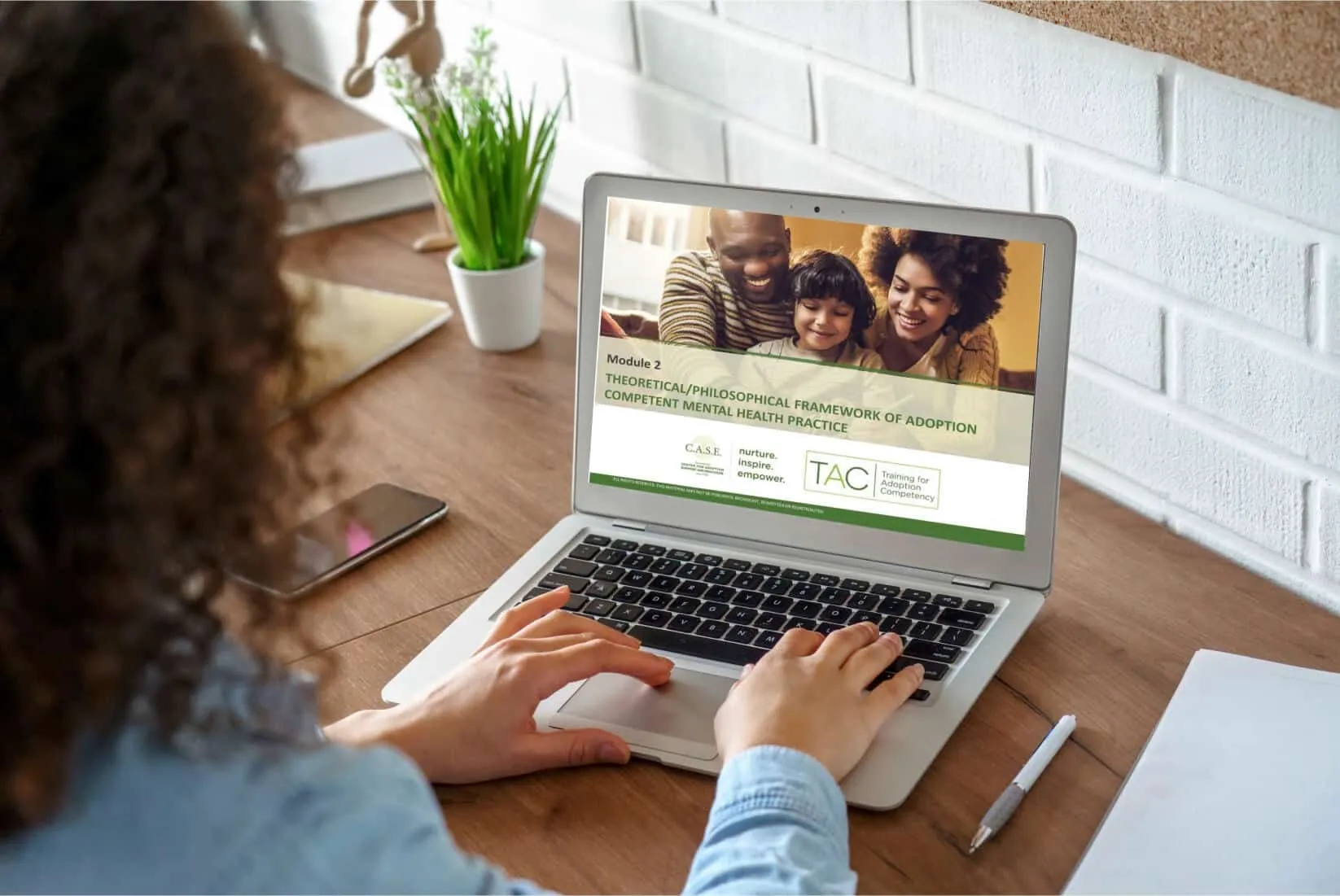
Training for Adoption Competency
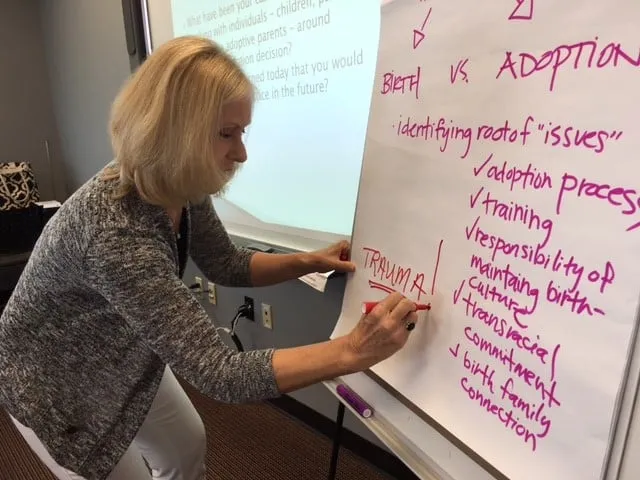
C.A.S.E. Training for Adoption Competency (TAC)™
Training for Adoption Competency (TAC) is the nation’s premiere assessment-based certificate program for training mental health practitioners and developing adoption competency skills. Through classroom and remote instruction, as well as clinical case consultation, TAC students master key clinical skills that support adopted children and their foster, adoptive and kinship families. TAC has 20 training centers across the country, over 2,500 graduates (and growing) and received accreditation from the Institute for Credentialing Excellence (ICE), making it a recognized top-tier program dedicated to public protection and excellence in practice.
TAC Accreditation & Curriculum
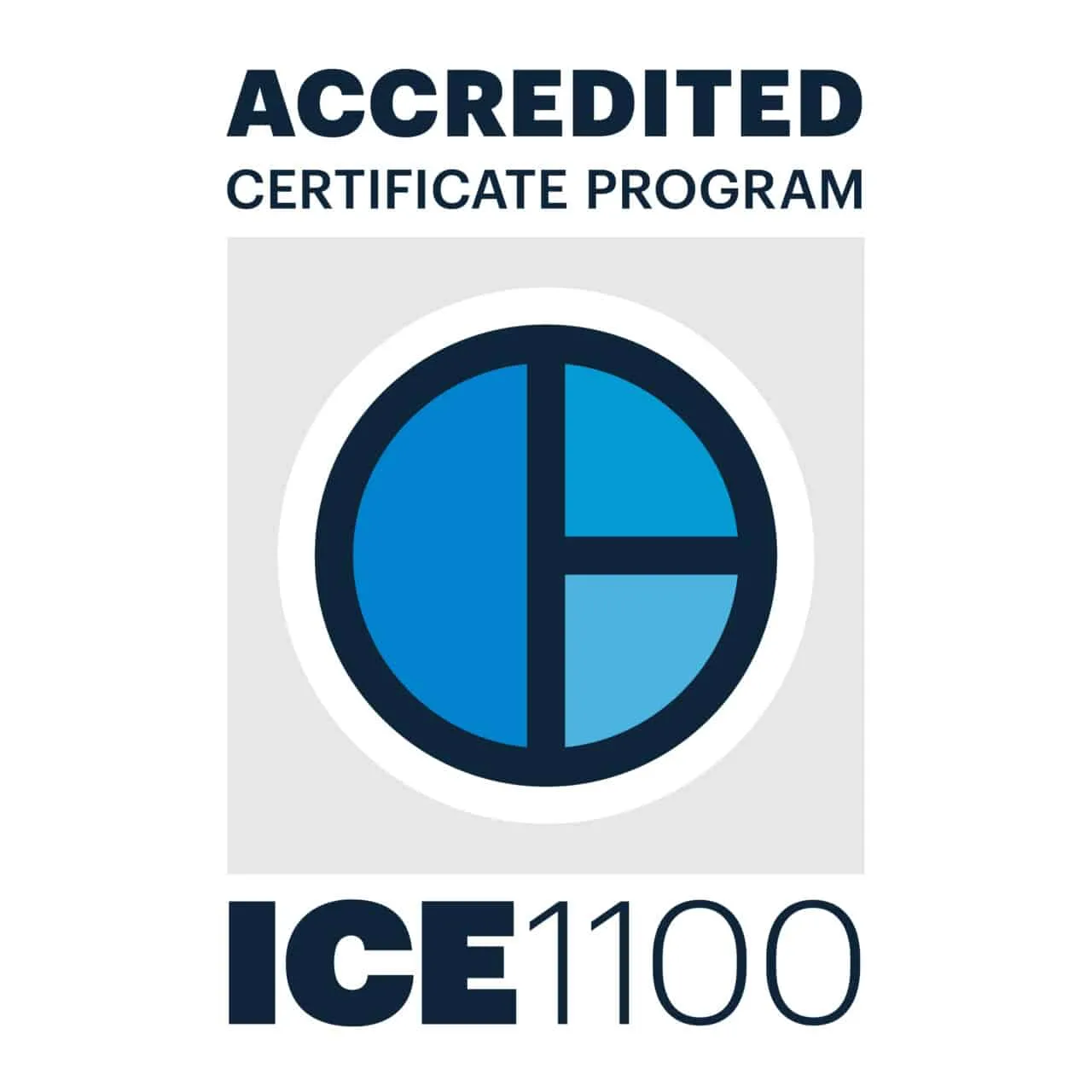
C.A.S.E. received accreditation of its Training for Adoption Competency (TAC) Program from the Institute for Credentialing Excellence (ICE) in November 2020. This rigorous accreditation is maintained through annual curriculum review and annual reporting.
The TAC training features a 72-hour curriculum based on the knowledge, skills and competencies identified by a National Advisory Board and Subject Matter Expert Committee. The training is led by skilled professionals who have completed a 36-hour Train-the-Trainer course and is delivered in one online session and eleven classroom-based sessions offered virtually or in-person. Case consultations are embedded in six of the classroom sessions to support the transfer of conceptual learning to real world practice.
This program is Approved by the National Association of Social Workers (Approval #886498889-4832 through 10/31/2024) for 60 continuing education contact hours.
Center for Adoption Support and Education (C.A.S.E.) has been approved by NBCC as an Approved Continuing Education Provider, ACEP No. 7463. Programs that do not qualify for NBCC credit are clearly identified. Center for Adoption Support and Education (C.A.S.E.) is solely responsible for all aspects of the programs.
View Timed AgendaThe case consultation component of the TAC training promotes the transfer of adoption-competent knowledge, skills, and values to actual clinical practice with adopted persons, adoptive families, birth parents and extended family members. C.A.S.E. senior clinicians and consultants provide the case consultation component virtually. Each student is required to present at least one case for consultation.
After completing all 12 training modules, including the presentation of a case consultation and module post-tests, each TAC student takes a final, 123-item assessment. Participants with final assessment scores of 70% or higher are awarded the TAC Certificate and receive continuing education credits.
Additional details about the program and assessment can be found in the Participant Program Manual.
TAC has been rigorously evaluated by an outside evaluator, PolicyWorks LTD, since its inception in 2009. TAC has been rated by the California Evidence-based Clearinghouse for Child Welfare Programs as a promising practice with high child welfare relevance in the category Child Welfare Workforce Development and Support Programs. An outcomes study funded by the Annie E. Casey Foundation in 2020 comparing families served by TAC trained clinicians with comparably qualified non-TAC trained clinicians showed more positive outcomes for their families on measures of communicative openness, adoption knowledge, relationships, and parenting skills and measures of daily functioning and relationships for their child.
Read the Effects of TAC on the Quality and Effectiveness of Treatment with Adoptive FamiliesAbout our TAC Instructors
Click photo to read bio


Anthony Hynes, Ph.D.
Training and Content Development Specialist
Brock Sellers, LICSW, PIP
TAC Coordinator and Trainer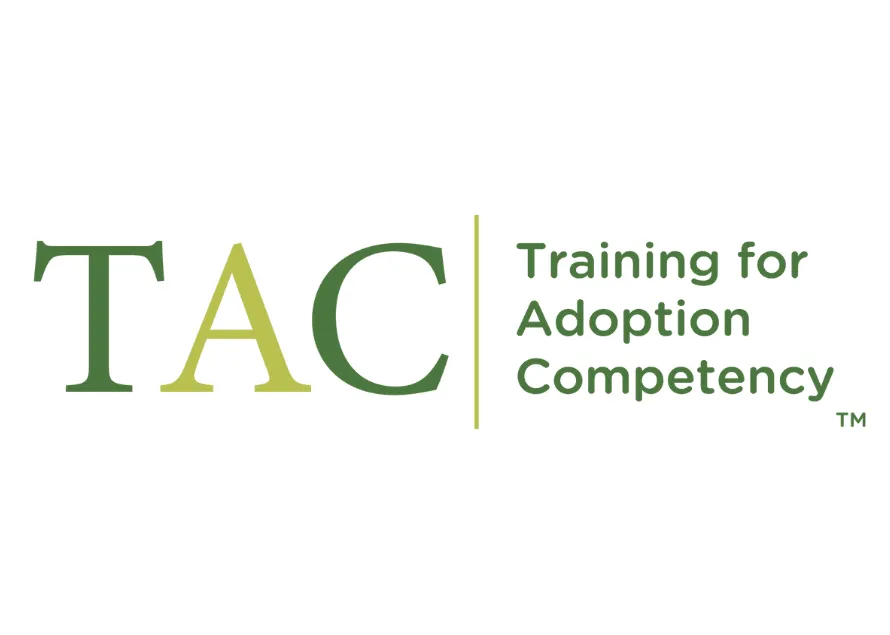
Access to adoption-competent mental health services is a critical factor in the outcomes for children and families experiencing foster care, adoption, and kinship care.
Adoptive parents report challenges finding therapists who understand their children’s needs. Most clinicians don’t receive advanced training on the unique needs of this population. C.A.S.E. Training fills this gap by teaching clinicians targeted adoption-competent skills and giving parents easy access to a cadre of highly trained, exceptionally qualified therapists who can help their families thrive.
Adoption Competence National Directory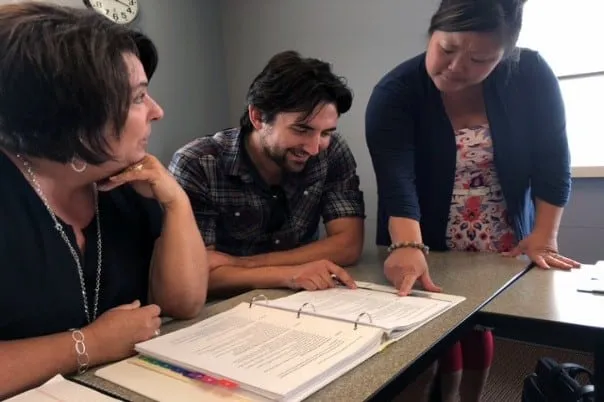
Become a TAC Site
C.A.S.E. partners with a network of authorized agencies across the country to provide TAC to mental health clinicians. We are working to bring on at least one new TAC site each year with the goal of having a TAC site in every state. Each TAC site establishes its own schedule of trainings, application process for students, and fee structure. If there is a TAC site in your state, you can contact the TAC site directly about training. For individuals located in states without TAC sites, C.A.S.E. periodically offers virtual TAC Trainings. If you are interested in being notified when a new training is scheduled or if you are an agency interested in becoming an authorized TAC site, contact us through the link below.
View list of current TAC Sites and Partners
What TAC Site Trainers Are Saying
CHRISTINA TRIPLETT, LCSW, TAC TRAINER AND SUPERVISOR OF POST-CARE SERVICES CATAWBA COUNTY DEPARTMENT OF SOCIAL SERVICES HICKORY, NORTH CAROLINA
“Being a TAC Trainer is an amazing experience. We see the growth in professionals working in the adoption field applying newly learned skills to their work with adoptive families, ultimately increasing the families’ stability and well-being. The training curriculum always remains current with the latest research to ensure that participants are well equipped to implement this new knowledge with families. The training goes beyond learning in the classroom and coaches clinicians to utilize these skills through the case consultation. It is an honor to be a trainer of this curriculum.”
